- Home
- international
- news
- In 1958, Martin Luther King Jr. was stabbed at a book signing. The assassination attempt left him 'just a sneeze away from death.'
In 1958, Martin Luther King Jr. was stabbed at a book signing. The assassination attempt left him 'just a sneeze away from death.'
Isaiah Reynolds

- In 1958, Martin Luther King Jr. was stabbed at a book signing in Harlem by Izola Ware Curry.
- The event nearly killed Dr. King, who was rushed to nearby Harlem Hospital and underwent emergency surgery.
Ten years before his untimely death, civil rights leader Dr. Martin Luther King, Jr. suffered an assassination attempt that left him "just a sneeze away from death."
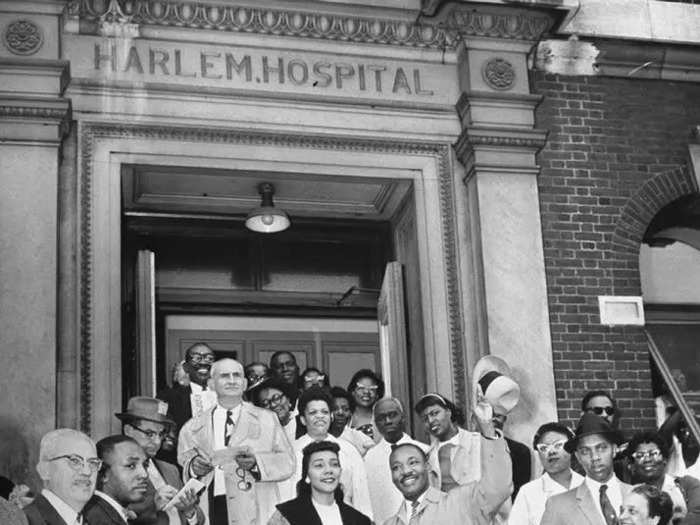
One of the physicians treating Dr. King after the attack said that, "had Dr. King sneezed or coughed, the weapon would have penetrated the aorta... He was just a sneeze away from death."
Source: Stanford King Institute
On September 20th, 1958, Dr. King was at a book signing for his memoir, 'Stride Toward Freedom,' at Blumstein's Department Store in Harlem. Georgia native Izola Curry was in the line of attendees waiting to speak with Dr. King.
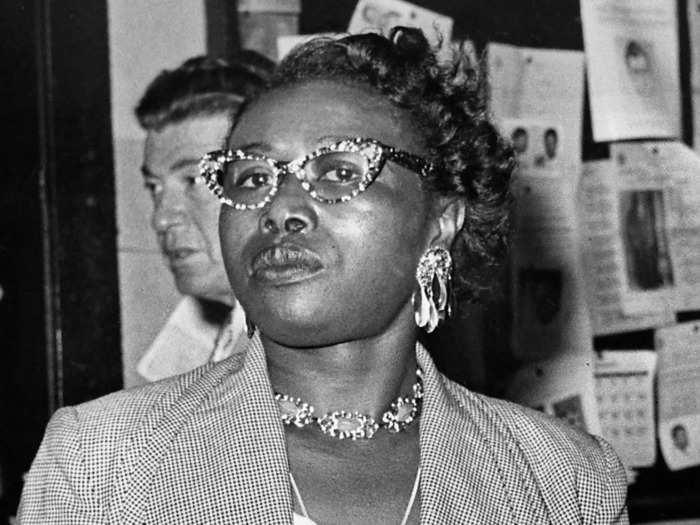
Source: New York Times
As her turn to speak with Dr. King arrived, Curry approached the civil rights leader and reportedly asked, "Are you Martin Luther King?""Yes," Dr. King replied without looking up.Curry then reached into her handbag, raised a seven-inch letter opener, and drove it into Dr. King's upper chest.
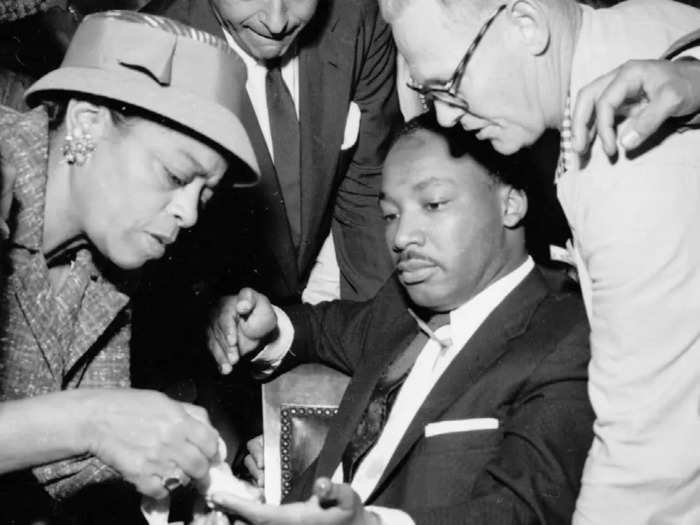
Source: New York Times
Chaos quickly ensued. Swarms of bystanders attended to Dr. King, while security immediately apprehended Curry. Not running or resisting, Curry reportedly exclaimed, "I've been after him for six years — I'm glad I done it."
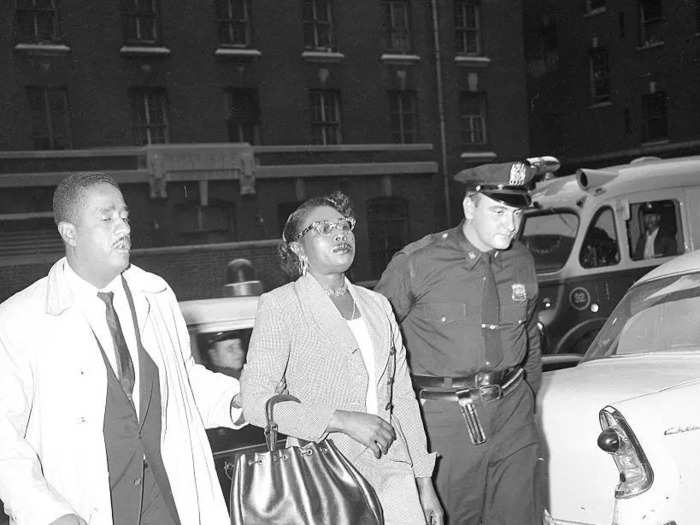
Source: Atlanta Journal Constitution
Dr. King was rushed to the nearby Harlem Hospital where medical professionals performed emergency surgery for two hours.
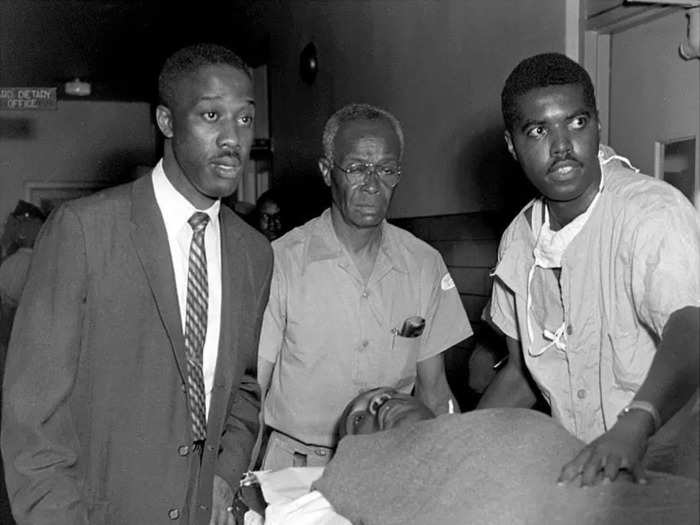
Source: New York Times
Officials, family, and preachers visited King pushing for his speedy recovery
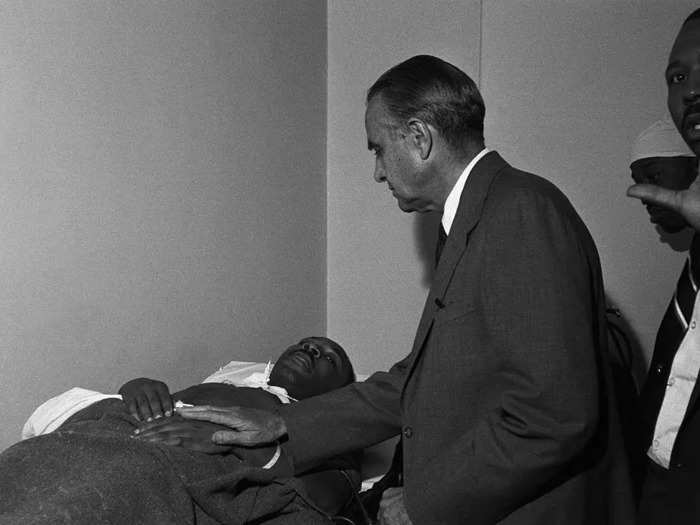
Andrew Young, an ambassador to the United Nations who was present during the attack, reported that King told him that being treated in the hospital was "an out of body experience" as he watched from above "preachers praying over him."
Source: Atlanta Journal Constitution
Back at Blumstein's, Curry was arrested. At the time, she was working as a housekeeper and factory worker, but her deteriorating mental health had pushed her to a state of increased paranoia.
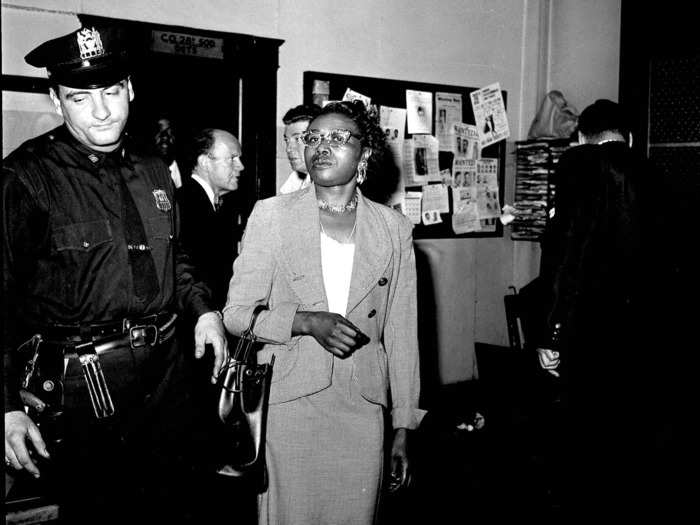
A later psychiatric report said Curry believed that she had been "under constant surveillance and all her movements [were] known to the NAACP and Dr. King." Officers at the scene found Curry had also brought a loaded .25-caliber automatic pistol to the scene of the crime.
Source: Atlanta Journal Constitution
Dr. King recovered from the attack over the next few days. In a speech he gave ten years later, Dr. King spoke of the attack, saying, "The X-rays revealed that the tip of the blade was on the edge of my aorta, the main artery. And once that's punctured, you're drowned in your own blood — that's the end of you."
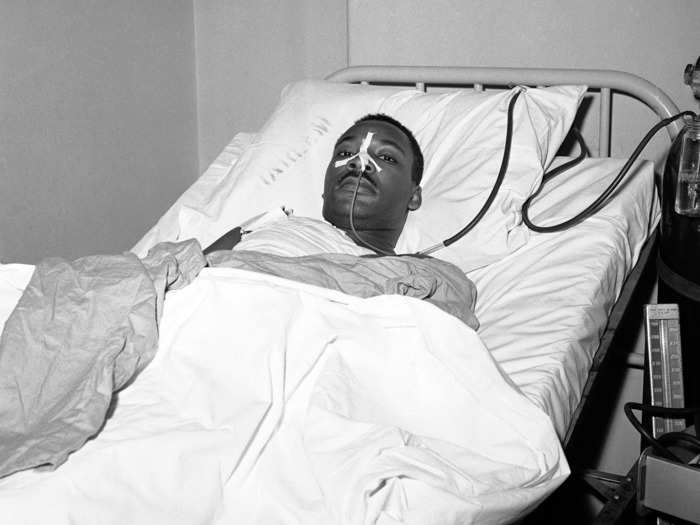
Source: New York Times, American Rhetoric
Following the attack, Curry was admitted to Bellevue Hospital and was deemed unfit to stand trial. Thirty days later, she was diagnosed with paranoid schizophrenia and committed to Matteawan State Hospital.
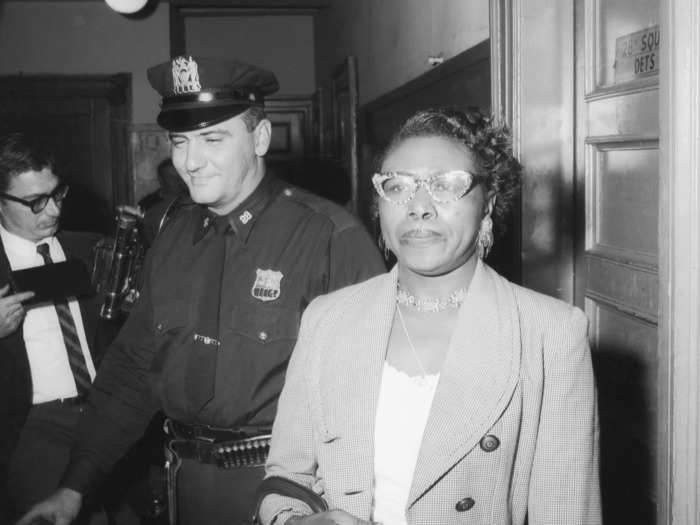
Source: Atlanta Journal Constitution
Upon learning about his assailant's mental state, Dr. King wrote of his concern and hopes for Curry: "I am deeply sorry that a deranged woman should have injured herself in seeking to injure me… I know that we want her to receive the necessary treatment so that she may become a constructive citizen in an integrated society where a disorganized personality need not become a menace to any man."
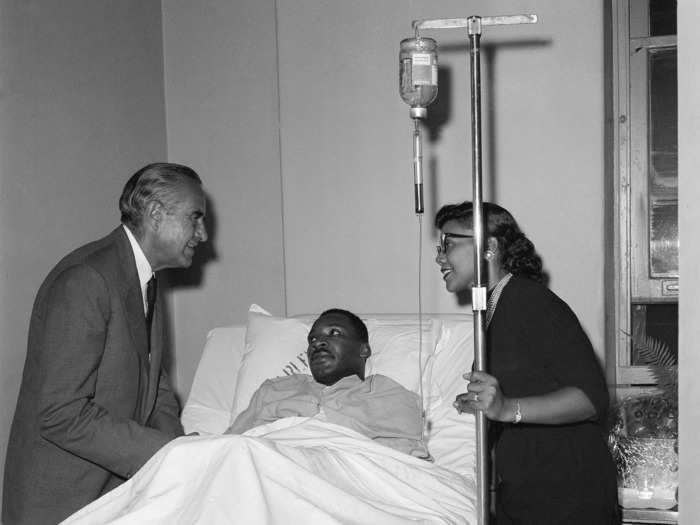
Source: Stanford King Institute
In his now infamous, 'I've been to the mountaintop' speech, delivered on April 3, 1968, in Memphis, Dr. King spoke of the attack, saying, "I'm so happy that I didn't sneeze," or he would not have been able to witness the Freedom Rides or the strides made by the Civil Rights movement. The very next day, on April 4, 1968, Dr. King was killed by James Earl Ray.
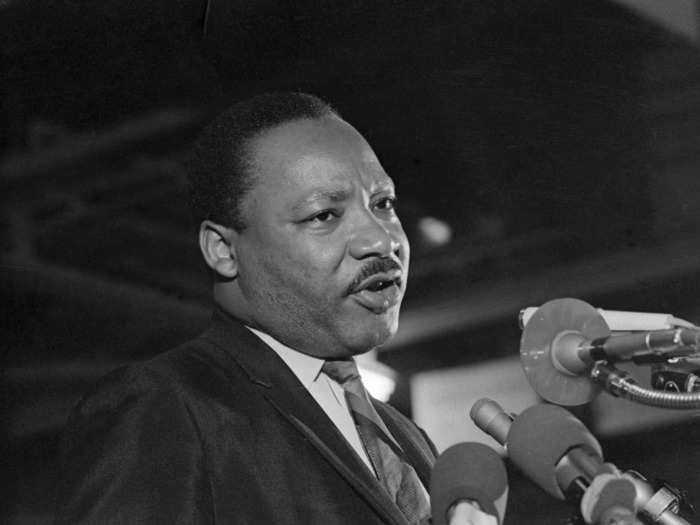
Source: New York Times, American Rhetoric
Popular Right Now
Popular Keywords
Advertisement